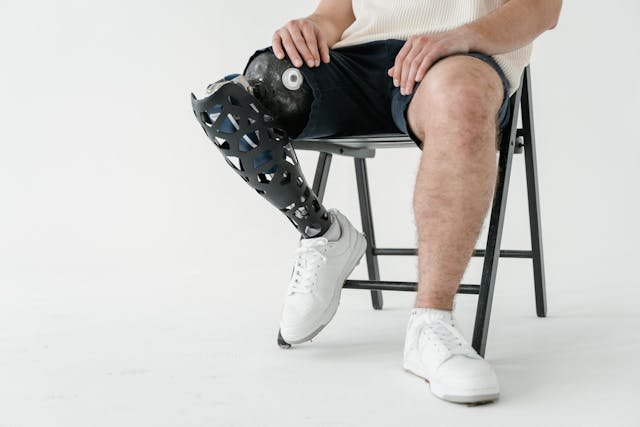For children and adults born with limb differences, getting the right prosthetic has always been a challenge. In the past, it took time, money, and travel to get something that was only partly personalized. Even then, many prosthetics felt uncomfortable or were too expensive to replace as the user grew or needed something new. But now, with the help of 3D printing, that story is changing. Access to prosthetics is no longer limited by location, cost, or long wait times.
At Robobionics, we’ve seen firsthand how 3D printing is giving new hope to congenital amputees across India. It’s helping people get the prosthetics they need—faster, better, and more affordably. In this article, we’ll explore how 3D printing is transforming prosthetic care for those born without limbs, and why this technology is more than just a tool—it’s a game changer.
Why Congenital Amputees Need a Different Approach
People born without a limb have different needs than those who lose one later in life. Their bodies develop differently, their muscles grow differently, and they don’t have the same memory of what movement felt like with two full limbs. This changes how prosthetics are used, accepted, and understood.
The Body Grows Without the Limb
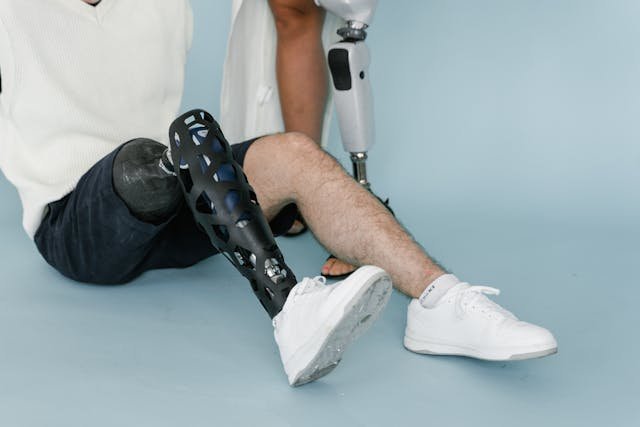
In congenital amputees, the affected limb often doesn’t grow the same way as the rest of the body. It may be shorter, softer, or shaped differently than a post-surgical limb. This means the prosthetic must be built from the beginning to support growth, comfort, and function at the same time. Off-the-shelf devices don’t always work well because they don’t consider the natural shape or movement pattern of the person’s body.
With 3D printing, we can scan the residual limb and print a socket or component that fits perfectly. We can adjust the design based on how the child or adult moves, sits, or stands. This allows for a much better starting point—one that adapts to the user, not the other way around.
Robobionics uses custom scanning and modeling for every congenital case we handle. No two limbs are alike, and 3D printing gives us the freedom to treat every person as truly unique.
The Mind Accepts the Limb Differently
Someone who loses a limb later in life remembers how it felt. Their brain must adjust to something missing. But for congenital amputees, there’s nothing to compare. The brain adapts from birth. This means the prosthetic is not replacing something lost—it’s adding something new.
That’s why prosthetic acceptance for congenital amputees depends heavily on timing and comfort. If the device feels awkward or heavy, it’s more likely to be rejected. But if it feels natural and helpful from a young age, it becomes part of how they explore the world.
Using lightweight 3D-printed materials allows us to build prosthetics that are much easier to wear and control. We can shape them to match each user’s posture and balance, making movement feel natural—not forced.
Long-Term Use Means Frequent Changes
Children grow fast. A prosthetic that fits at age three will not fit at age five. For congenital amputees, this means prosthetic care must be flexible and ongoing. Traditional prosthetics are expensive to remake each time the user grows or wants something new.
But with 3D printing, we can create updated devices quickly and affordably. The digital model is already saved, so only minor edits are needed to resize or improve the fit. This makes it possible for congenital amputees to always have a prosthetic that suits them—not one they’ve outgrown or stopped using.
At Robobionics, we encourage families to check in regularly. With 3D printing, we’re able to provide updated prosthetics at a pace that matches the child’s growth and activity level.
How 3D Printing Changes the Way Prosthetics Are Made
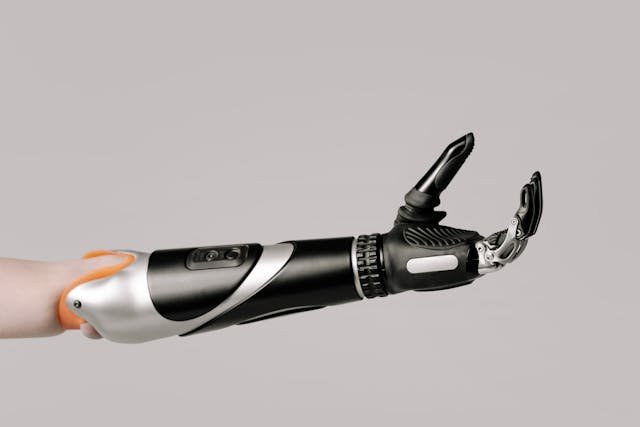
Traditional prosthetic manufacturing is slow. It involves manual measurements, hand-shaping, and trial-and-error fittings. It can take weeks or even months to create a final product. In contrast, 3D printing offers a new way forward—one that is digital, accurate, and much faster.
From Scanning to Fitting in Less Time
The process begins with a 3D scan of the residual limb. This creates a detailed digital model that captures every curve and surface. Instead of taking rough measurements with tape or molds, we use scanners that create an exact map of the limb in just a few minutes.
Once the scan is done, our design team builds a socket and prosthetic structure in CAD software. We adjust the angles, shape, and weight distribution based on how the user moves. Then we print the parts using strong yet lightweight materials. Within days, the prosthetic is ready for testing and fitting.
Robobionics uses this digital-to-physical process to cut down waiting times dramatically. For families in remote areas, this means fewer visits and less time away from home, school, or work.
Customization Without Compromise
With traditional methods, customizing a prosthetic often meant starting from scratch, which added to both cost and delivery time. But 3D printing allows us to tweak only what’s needed. We can change one part of the design without touching the rest. This means better results in less time.
We can also offer personalized colors, textures, and even features that match the user’s lifestyle. A child who loves superheroes can have a themed arm. A student can get a lighter, more compact hand for schoolwork. A teenager learning to ride a bike can have stronger grips for safety. These details build confidence and make prosthetics more than just tools—they become part of identity.
Robobionics believes that style and function should work together. With 3D printing, we can finally offer both, at a cost families can manage.
Better Fit, Better Function, Fewer Adjustments
One of the biggest frustrations in prosthetics is poor fit. If the socket is too tight, the user won’t wear it. If it’s too loose, it won’t help. With 3D scanning and digital modeling, we can predict and correct these issues before the prosthetic is even printed.
Because we design with precision, fewer adjustments are needed later. This saves time at the clinic and reduces frustration for families and users. A better fit means more wear time, smoother movement, and higher acceptance—especially in congenital amputees, who are learning to trust the device from a young age.
At Robobionics, we offer home-based follow-ups to ensure each 3D-printed prosthetic continues to fit well over time. We believe comfort leads to confidence, and confidence leads to long-term use.
Making Prosthetics More Affordable and Accessible Across India4
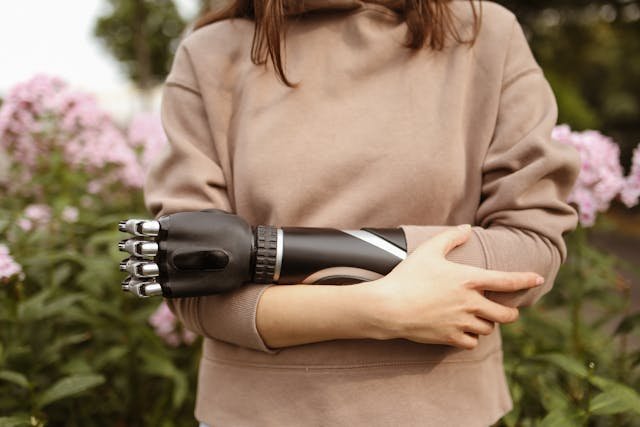
One of the biggest challenges for congenital amputees in India has always been access. Many families live far from major cities where prosthetic services are available. Even when they do find care, the cost of traditional prosthetics can be overwhelming—especially when they must be replaced every few years. This is where 3D printing truly stands out. It’s not just a new way to make prosthetics. It’s a more inclusive, more affordable, and far more scalable solution for families across both rural and urban regions.
Reducing Costs Without Reducing Quality
Traditional prosthetics involve multiple steps that take time and require skilled labor. Materials like carbon fiber or metal can be expensive. The manual process also means errors happen more often, leading to remakes, delays, and extra expenses. All of this increases the final cost to the patient.
With 3D printing, many of those barriers are removed. Once the digital design is finalized, the prosthetic can be printed with minimal human labor, reducing the total time and effort involved. The materials used in 3D printing, like lightweight polymers, are cost-effective and easier to source locally.
At Robobionics, we’ve reduced the cost of some upper-limb prosthetics by up to 50% using 3D printing, without compromising on performance or durability. This allows more families to access care and upgrade devices as their children grow—something that wasn’t always possible with older methods.
Reaching Underserved Communities Faster
Families in smaller towns and rural areas often face long travel distances and waiting times just to get an evaluation, let alone a fitted prosthetic. These delays affect children the most, since early intervention is so critical to helping them build strength, balance, and confidence.
3D printing opens the door to faster, more remote solutions. Scans of the limb can be done in local partner clinics, or even using mobile apps in the future. The designs can then be shared digitally with a central prosthetic center, where the device is printed and shipped. This reduces the number of visits required, and allows children to receive care without being pulled away from school or home for long periods.
Robobionics is building a growing network of partner clinics, rehabilitation centers, and local hubs where scanning and basic support can happen. We handle the complex printing and fitting centrally—bringing quality prosthetics to remote corners of India without sacrificing time or care.
Enabling More Frequent Replacements and Upgrades
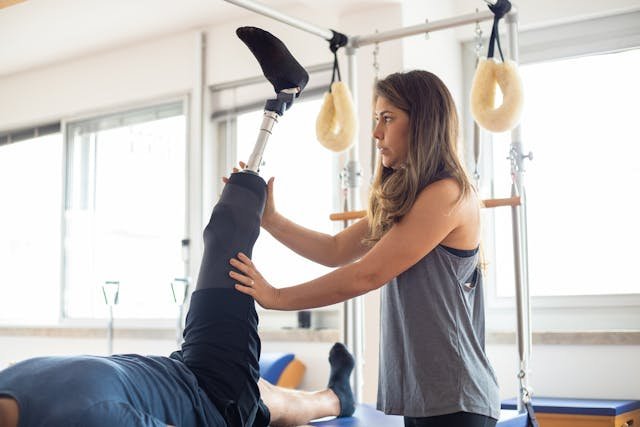
Because 3D printing is so flexible and low-cost, families no longer have to “make do” with an outdated or poorly fitting prosthetic. If a child grows out of their device, or if it breaks, a replacement can be printed quickly and affordably. This encourages regular use and helps users feel more comfortable and supported throughout every stage of their development.
This is especially helpful for children and teenagers who may want different prosthetics for school, sports, or casual use. Before 3D printing, having multiple devices wasn’t a realistic option for most families. Now, it’s becoming more common to provide children with the right prosthetic for the right activity.
At Robobionics, we offer a subscription-based service for our pediatric users, allowing families to receive timely updates and replacements as their child grows. Our mission is simple: no child should have to outgrow their prosthetic—or their potential.
Shaping the Future of Pediatric Prosthetics Through Innovation
As 3D printing continues to evolve, it’s not just improving how prosthetics are made—it’s changing what’s possible. For congenital amputees, especially children, the future of prosthetic care will be smarter, more personalized, and even more responsive to their daily lives. What once seemed like science fiction is now becoming part of everyday care, thanks to the growing innovation around 3D printing.
Personalized Designs That Support Self-Expression
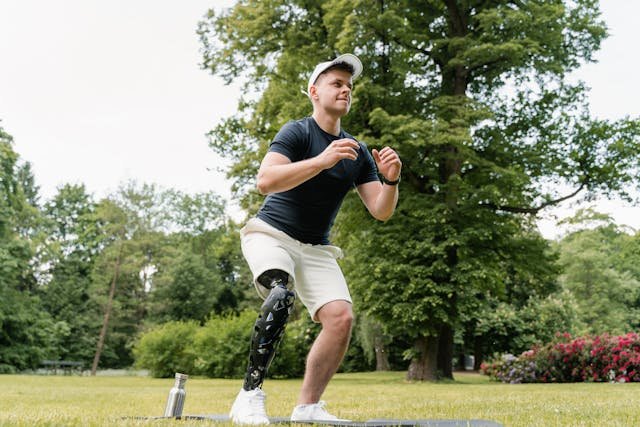
For children, identity plays a huge role in how they accept and use their prosthetic. If the device feels boring, bulky, or “medical,” they may avoid it or wear it less. But if the design feels personal—if it reflects their favorite color, cartoon, or hobby—it suddenly becomes something they are proud to wear.
3D printing makes it easy to create designs that reflect personality. Whether it’s a colorful pattern, a favorite character, or even custom textures, kids can help design how their prosthetic looks. This turns the process into something fun and empowering, not just clinical. It also improves wear time, social confidence, and long-term acceptance.
At Robobionics, we involve children in the design process by letting them choose visual elements and colors. When kids feel ownership of their prosthetic, they use it more—and smile more too.
Preparing for Sensory and Smart Features
One of the most exciting areas of development is in sensory feedback. Imagine a hand that lets a user “feel” pressure or texture. Or a leg that adjusts itself in real time based on walking patterns. These advanced features are being developed using sensors, flexible electronics, and smart algorithms—and 3D printing will play a huge role in housing these technologies in ways that are lightweight and safe for young users.
While these innovations are still in progress, the groundwork is being laid now. The flexible materials used in 3D printing can hold sensors without breaking. The modular design of 3D-printed sockets allows for easy upgrades as new features become available.
Robobionics is already exploring sensor integration with our Grippy™ hand platform. Our goal is to bring these features to congenital users in the near future, making their prosthetics not just functional—but truly responsive to the world around them.
Supporting Local Manufacturing and Faster Delivery
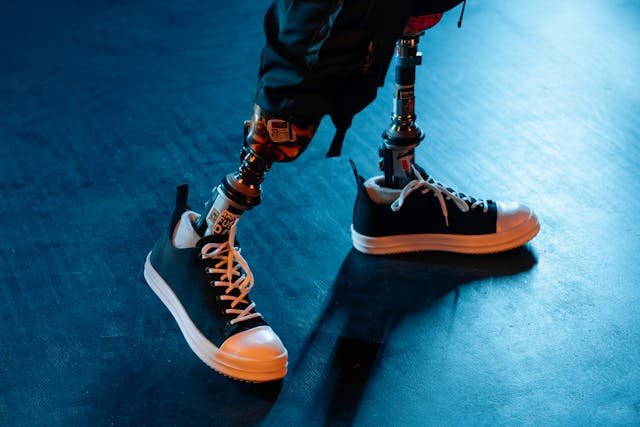
3D printing also supports the dream of decentralized, local production. Rather than relying on overseas parts or central factories, small printing hubs can be set up in cities or even district clinics across India. This reduces shipping time, cuts costs, and allows for faster service.
More importantly, it creates opportunities for local talent—technicians, designers, and engineers—to be part of the prosthetic care system. This boosts community involvement and ensures that care is rooted in the culture and needs of the people it serves.
At Robobionics, we are actively working to expand our network of local printing and assembly centers. Our aim is to ensure that high-quality prosthetics are never more than a short journey away, no matter where a child is born in India.
Conclusion
3D printing is more than just a new way to make prosthetics—it’s a revolution in how care is delivered, especially for congenital amputees. It brings speed, precision, and personalization into a field that has long been limited by cost, distance, and outdated technology. Most importantly, it puts the user—especially the child—at the center of the design.
For children born without a limb, early experiences shape how they see themselves and the world around them. A prosthetic that fits well, feels light, and looks like something they love can make all the difference. With 3D printing, these devices are no longer slow to arrive or out of reach financially. They’re flexible, accessible, and ready to grow alongside the child.
At Robobionics, we believe the future of prosthetics lies in collaboration between technology, design, and compassion. We use 3D printing not just to build arms or hands—but to build confidence, curiosity, and opportunity. Every prosthetic we create is a tool for movement, a source of strength, and a symbol of what’s possible.
If your child has a congenital limb difference and you’re exploring prosthetic options, now is the perfect time to discover what 3D printing can offer.



